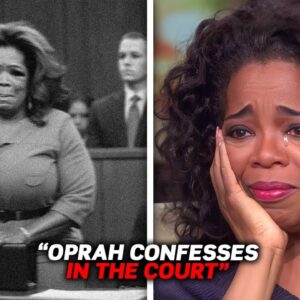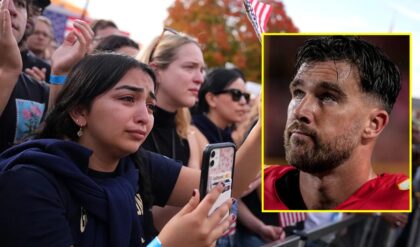In a recent interview, Havoc, one half of the legendary hip-hop duo Mobb Deep, recounted a dramatic incident from the late 1990s that highlighted the intense rivalry between New York rap heavyweights, particularly between Mobb Deep and Jay-Z. Havoc’s revelations centered on a time when Prodigy, the other half of Mobb Deep, allegedly made Jay-Z “run for his life,” shedding light on the fierce competitive spirit that defined the era. This story not only illustrates the tensions within the hip-hop community but also provides insight into the personal dynamics between some of the most influential figures in rap history.
Mobb Deep emerged from the Queensbridge Houses in New York City, establishing themselves as one of the most influential duos in hip-hop. Their gritty sound and lyrical depth resonated with fans, and they quickly gained a reputation for their raw storytelling and street credibility. Prodigy and Havoc’s unique chemistry allowed them to create classic albums like “The Infamous,” which solidified their place in hip-hop history. However, their success also brought them into conflict with other artists, including Jay-Z, who was rising rapidly in the late ’90s and early 2000s.
The rivalry between Mobb Deep and Jay-Z became particularly heated after Jay-Z released his track “Takeover” in 2001, which targeted several rappers, including Prodigy. In his verse, Jay-Z infamously called out Prodigy’s history of being bullied as a child, which struck a nerve and escalated tensions between the two camps. The stakes were raised, and the feud continued to simmer, leading to incidents that would define the landscape of hip-hop at the time. Havoc’s recent recounting of events offers a deeper understanding of how this rivalry played out behind the scenes.
According to Havoc, the situation escalated when Prodigy confronted Jay-Z at a specific event, and the atmosphere was charged with hostility. Havoc described how Prodigy’s reputation as a fearless and aggressive rapper often preceded him, and it was this persona that led to Jay-Z feeling threatened. The details of the encounter reveal the intensity of the rivalry and the lengths to which both artists would go to defend their reputations. Havoc’s retelling emphasized that, in hip-hop, respect is paramount, and any perceived disrespect could lead to serious repercussions.
Havoc explained that the confrontation wasn’t just a typical verbal exchange; it was filled with a palpable tension that made it clear both parties were ready to escalate things if necessary. Prodigy’s fierce loyalty to his crew and his reputation for not backing down from a fight contributed to the atmosphere of fear that Jay-Z felt during this encounter. The legend of how Prodigy made Jay-Z “run for his life” became a part of hip-hop folklore, illustrating the passion and rivalry that often define the genre.
The incident also highlights the broader cultural context of hip-hop in the late ’90s and early 2000s. During this time, the New York rap scene was characterized by fierce competition, with artists vying for dominance and recognition. The stakes were high, and the music industry was rife with rivalries that often spilled over into personal conflicts. Havoc’s account serves as a reminder of the rawness of the culture, where artists were not only competing for chart positions but also for respect and credibility on the streets.
Moreover, Havoc’s story underscores the importance of authenticity in hip-hop. For artists like Prodigy and Havoc, staying true to their roots and their image was crucial. They represented the struggles and realities of life in Queensbridge, and any sign of weakness could be exploited by rivals. Jay-Z, on the other hand, was crafting a narrative that balanced his street credibility with commercial success. This clash of perceptions and identities fueled the rivalry, making every interaction between the two groups fraught with potential conflict.
The fallout from this rivalry was felt throughout the hip-hop community and influenced the way fans perceived both Mobb Deep and Jay-Z. While Jay-Z would go on to achieve unprecedented success, becoming one of the biggest names in music, Mobb Deep remained loyal to their gritty image, often embracing the darker aspects of their narratives. This divergence in their approaches to fame and artistry created a lasting impact on their careers and the music they produced.
In the years that followed, both Havoc and Prodigy would reflect on their rivalry with Jay-Z and the broader implications of their actions. Havoc acknowledged that while the conflicts were intense, they were also a part of the culture that shaped them as artists. The competitive spirit pushed them to elevate their craft, and the rivalries they engaged in forced them to be better musicians and storytellers. This acknowledgment of the rivalry as a driving force in their artistry is a testament to the complexities of hip-hop culture.
As the years went on, the tensions between the two camps began to cool, and both Jay-Z and Mobb Deep found ways to coexist in the industry. Many fans were eager to see resolutions to the
Watch video:
News
Da Brat BREAKS DOWN After Wife Judy ATTACKS Her and STEALS Their Baby
Da Brat, the iconic rapper and reality television star, has recently found herself at the center of a shocking and emotional incident involving her wife, Judy. This unexpected altercation has not only left Da Brat devastated but has also raised…
90 Day Fiancé’s Angela Takes a SHOCKING Step With Rehab And Counseling Journey
Angela Deem, a prominent figure from the reality series “90 Day Fiancé,” has recently made headlines with her decision to embark on a journey of rehabilitation and counseling. Known for her fiery personality and tumultuous relationships, Angela’s choice to seek…
Ashanti’s TEARFUL Confession About Her New Baby Leaves Fans Completely SHAKEN
In an emotional and heart-wrenching revelation, R&B singer Ashanti has left fans completely shaken with her tearful confession about her journey to becoming a mother. The singer, known for her powerhouse vocals and chart-topping hits, has always kept her personal…
Oprah BREAKS DOWN in Courtroom & Confesses EVERYTHING at Diddy’s Trial!
In a stunning courtroom development, media mogul Oprah Winfrey broke down in tears and confessed to shocking revelations during Sean “Diddy” Combs’ high-profile trial. The unexpected turn of events has sent shockwaves through both the entertainment world and the public,…
Elon Musk EXPOSES Arrest Warrants for Hollywood Elite Linked to Diddy!
Elon Musk has once again shocked the world, this time claiming to have uncovered explosive information that links Hollywood elites to arrest warrants stemming from their connection to Sean “Diddy” Combs. The tech mogul, who has made a name for…
Shocking FBI Report Claims JENNIFER Lopez Escaped After Diddy’s Massive THREAT Emerged
In a shocking turn of events, a leaked FBI report has claimed that Jennifer Lopez, one of the most beloved stars in Hollywood, narrowly escaped a dangerous situation after a massive threat from Sean “Diddy” Combs emerged. The explosive revelations…
End of content
No more pages to load











